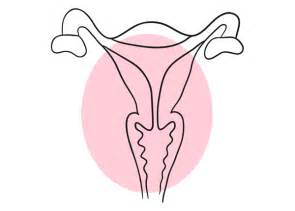Woman becomes first in US to give birth after uterus transplant, Health News
December 4, 2017
Source: visionaryaline
 637
637

For the first time in the United States, a woman with a transplanted uterus gave birth, officials at a Dallas hospital said on Friday.
The birth of the healthy baby, whose birth date, sex and weight were not disclosed, was confirmed by a spokesman for the Baylor University Medical Center.
The woman who gave birth has asked to remain anonymous, said Craig Civale, spokesman for Baylor and Baylor Scott & White Research Institute.
While the birth of a healthy baby by a woman with a transplanted uterus was a medical first in the United States, it follows several childbirths by women with transplanted uteruses at Sahlgrenska University Hospital in Gothenburg in Sweden, said Civale.
Doctors involved in the transplant will hold a press conference on Monday to talk about the medical milestone.
Dr. Liza Johannesson, a transplant surgeon at Baylor who was also part of the team that performed the first womb transplants in Sweden, told Time magazine that veteran surgeons were crying when the child was born. Time was first to report the birth on Friday.
A 36-year-old registered nurse who has two children donated her uterus to the unnamed woman, Time said.
A womb transplant programme at Baylor has been under way since last year, and surgeons there have completed eight in a medical trial of 10 transplants, according to Time. Of the eight, three have failed, and one has resulted in another woman being pregnant, the magazine reported.
It takes five hours to remove a healthy uterus and another five hours to place it into a woman who otherwise could not become pregnant.
The first birth following uterus transplantation occurred in September 2014 by a 35-year-old woman who received the womb of a 61-year-old woman.
The first attempted uterus transplant in the United States in February 2016 at the Cleveland Clinic in Ohio, from a deceased donor, failed because of a yeast infection.
When a woman has a transplanted uterus, in vitro fertilization is the only way she can become pregnant because the ovaries are not connected to the transplanted womb.
Johannesson told Time, « A lot of people underestimate the impact that infertility can have on a person’s well-being. It can have such a profound impact. »
By DduRead more on
- Things to Know before Buying Newborn Baby Incubators March 31, 2022
- Highly Resistant Food Poisoning Bug Responds to Antibiotics September 6, 2018
- Smartphone Based Diagnosis to Identify Mosquitoes Transmitting Infection September 5, 2018
- 3 Natural Plant Extracts Manufacturers on Drugdu.com September 4, 2018
- Shenzhen Chuanggan – Health Assessment Facility Supplier September 4, 2018
your submission has already been received.
OK
Subscribe
Please enter a valid Email address!
Submit
The most relevant industry news & insight will be sent to you every two weeks.



